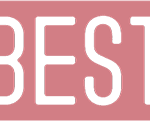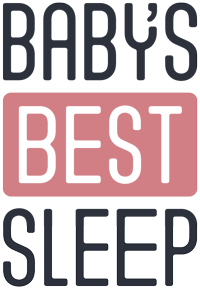September 2, 2025
The Chart Is Not The Boss Of You
“A problem is only a problem when it’s a problem for you,” I say (and have said one hundred million times, for those who’ve been here a while…). I hear a sigh of relief on the other end of the phone.
“I really like that,” the client says.
Last December, at a party we hosted, I got chatting with a new neighbour about his job. He worked in advertising and was telling me how different things are these days. Many products, he said, are created to solve problems you didn’t even know you had.
Voila—this new product/service/thing will fix it for you.
I mean. Diabolical, right?
But honestly? Not that surprising to me.
I live in the world of talking parents down.
My insomnia clients track their every move at night, desperately trying to engineer the perfect sleep.
My TikTok feed is full of sleep-maxxing tips—ways to SQUEEZE MORE out of your sleep because you’re clearly not doing unconsciousness right.
When I was a new parent, I obsessed over wake windows, feeding trackers, and poop logs (you know it’s true). All because the chart said I should.
Once, I picked up a book that basically told me my baby would be “failure to thrive” because she never fed longer than five minutes. Ever. In her life.
Panicked, I brought my very chubby six-week-old (16 lbs!) into the doctor and begged her to weigh the baby and assess our feeding.
The (very confused) doctor looked at me (and my basketball-sized boobs), looked at my baby (whose skin was bursting with rolls), and said:
“Stop reading that book. It’s not helpful.”
She was right. I stopped reading the book.
And here we are today.
Here’s the thing—our sleep, our kids’ sleep, our bodies, our weights: we are all living totally different lived experiences.
Different genetics. Different temperaments. Different needs.
You can’t fit a square peg into a round hole.
(Okay, maybe you can, it’s 2025. But WHY is it so hard? How painful does it become? How warped do we make ourselves in the process?)
It’s hard because it’s not meant to be there.
I beg you: for yourself and your child—try being in your body.
Yep. IN your body.
Feel your breath.
Touch your skin.
Close your eyes.
Now—what is your body telling you?
Ask yourself:
Are you rested? (Maybe not—you’re here because your baby doesn’t sleep. LOL.)
Do you wake up rested?
Is your child happy, playful, and otherwise well (eating, peeing, pooping)?
If the answer is yes—you’re okay.
Everyone’s sleep needs are different—including your child’s.
If your neighbour’s kid naps for 3 hours and yours does 2, that doesn’t mean you need to go digging for the missing hour.
If you feel great after 7 hours, why are you killing yourself to get to 8?
The best indicator of your needs is how you feel—not what a chart or an app tells you.
But—if you or your child is consistently cranky, foggy, or yawning like it’s a competitive sport?
That’s when tracking can be helpful. Establish a baseline, then bring it to someone like a doctor, or an insomnia therapist (hi!), to sort out what’s normal and what’s not.
Your body is an excellent communicator.
Let’s actually listen to it—this free, natural, wildly underrated tool.
You’ll be glad you did.
If you’re feeling stuck—whether it’s your sleep, your child’s sleep, or just your need to do everything perfectly—book an appointment with me here. We can talk sleep, anxiety, parenting, or whatever’s keeping you up at night (literally or figuratively)..
If you’re LEGIT tired and you know why (they’re probably 8 months old, cute as a button, and plotting your downfall), chat with one of our amazing team members here. We’ve got you.



